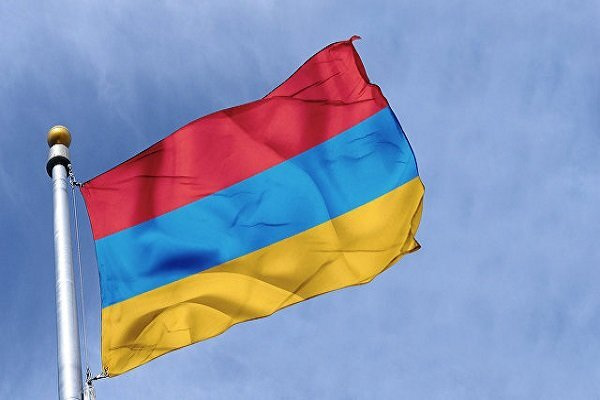Armenia, from political independence to becoming Israel's backyard

As the occupied territories witness the process of normalization of relations between Arabs and the Zionist regime as one of the most significant prerequisites for the implementation of the so-called Deal of the Century, the political geography of the countries outside of West Asia also serves as the backyard of the Zionist regime to ensure its foreign security along with Political and economic influence.
The Zionist Regime seeks to exploit the political instability and the global economic crises to promote its legitimization project and also for domestic purposes such as political competitions. Therefore, the Herzliya think tank plays an important role in providing political and financial support to separatist groups and paving the way for religious and ethnic differences in the Middle East.
Israeli security agencies also emphasize that the influence of Israel must extend beyond West Asia in all the fields, not only to complete the Zionist projects but also to reduce the maneuverability of the Islamic and Arab world. This way, the process of legitimizing the Israeli regime and government will be facilitated by its own.
The most important element in adopting such a security approach is the influence of the Islamic Republic and also to accelerate the regional destabilizing plan which is developed to consequently eliminate Tehran as the forefront of Islamic Resistance and ideology.
This west-oriented approach applied by some economically challenged countries provides Israel with an opportunity to expand its dominance due to the regional tensions and the indifference of Arab leaders and organizations.
Although Israel had faced some difficulties to boost its relations with a number of countries with economic problems in order to ensure its political power, negotiating the opening of the Armenian embassy in occupied Palestine indicates that these efforts have been resumed.
The point is that Armenia has decided to open its embassy in the occupied Palestinian territories by the end of March. The official decision and sending the ambassador to occupied Palestine comes into effect after the visit of the then-White House National Security Advisor to Yerevan. However, Armenia opposed the recognition of Quds as the capital of Israel in December 2017, it is unclear whether or not Tel Aviv’s next move is to establish the Armenian embassy in Quds.
Perhaps close relations with Tel Aviv may fulfill some of Yerevan's economic and security needs for some time, but the Armenian government must also reflect on the consequences of these relations, especially as Israel still does not recognize the Armenian genocide by the Ottoman government. This is due to the type of economic relations with Turkey and the purchase of weapons from Israel. Thus, it can be seen that Israel does not take into account any moral and humane considerations in its relations.
Looking at the relations between the Republic of Azerbaijan and Israel, the Armenian government will truly understand how the influence of Mossad has undermined the security of the country. As a result, opening the embassy in Quds will be a threat to the political and national independence of Armenia.
Tehran's considerations regarding respecting the countries' territorial integrity and their national independence of the countries must be taken into account, especially as Iran's transit route is the only way to conduct business with Armenia. Moreover, a large quantity of Armenia’s required gas is supplied by Iran.
On the other hand, Russia will undoubtedly oppose the idea of using Armenia to promote security and economic influence. It had already severely criticized Israel’s arms deal with Georgia and the Republic of Azerbaijan.
Source: Mehr

